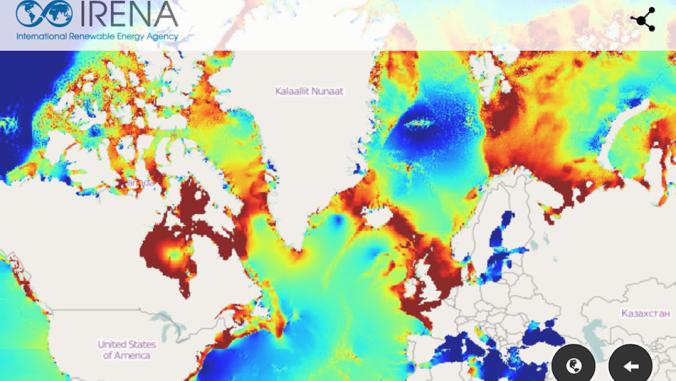Corporate carbon investments: Over $1 billion saved
<p>UPS, Cisco Systems and PepsiCo are among the Fortune 100 companies leading to ramp up renewable energy and reduce emissions, a new study says.</p>

UPS truck by Tomas Fano via Flickr
The largest U.S. companies are saving more than $1 billion a year by buying renewable energy and embracing emissions reduction targets, a new study has revealed.
The report finds low carbon corporate strategies are becoming the new business as usual across much of corporate America, despite the gridlock that tends to hamper Washington's climate change efforts.
The study, "Power Forward, How American Companies Are Setting Clean Energy Targets and Capturing Greater Business Value," was published last week by advocacy group Ceres, WWF, Calvert Investments, and consultants David Gardiner & Associates.
It found 60 percent of Fortune 100 companies have set targets for renewable energy or greenhouse gas reductions. Moreover, 53 of these companies that report on their targets have collectively saved $1.1 billion annually and reduced their yearly CO2 emissions by more than 58 million metric tons — the equivalent of retiring 15 coal-fired power plants.
The companies posting the biggest improvements to their bottom line were UPS, which saved more than $200 million annually; Cisco Systems, which made a saving of $151 million; PepsiCo, which saved $120 million; United Continental, which cut costs by $104 million; and General Motors with a saving of over $73 million.
The report also found that 85 percent of the Fortune 100 companies whose targets ended in 2012 achieved their goals and 80 percent have gone on to set greater targets or still have other ongoing targets in place. These companies alone recorded nearly $400 million in annual savings through their carbon reduction projects and reduced emissions by 44 million metric tons of carbon dioxide equivalent (mtCO2) a year.
"The world's largest companies are demonstrating that investments in clean energy drive strong returns," said Bennett Freeman, senior vice president for sustainability research and policy at Calvert. "Setting and meeting renewable energy targets helps companies and their shareholders to address clear risks and seize concrete opportunities."
The scale of savings is likely to accelerate as more companies commit to low carbon policies. Walmart, for example, expects to save $1 billion globally per year as a result of its renewable energy and energy efficiency initiatives, while IT giant Dell estimates improvements to the efficiency of its products will save customers $1.1 billion each year.
However, the report cautions that progress is mixed among smaller companies. Around 53 percent of the Fortune 500 have set targets in at least one of three categories: reducing greenhouse gas emissions; improving energy efficiency; and procuring more renewable energy. But only 30 percent of the companies among the Fortune 250 to Fortune 500 have emissions, renewable energy or energy efficiency targets or some combination of the three in place.
Moreover, it warns that even among the leading companies the timeframes for achieving targets vary hugely and few are aligned with the emissions reductions climate scientists say are urgently needed to avoid the worst impacts of climate change.
Clean energy investments will not reach the levels required until barriers such as inconsistent policy signals and internal competition for capital are addressed, the groups warned.
The report recommends companies not only set time-based targets and monitor progress, but also identify opportunities to support local, state and national policies that remove barriers to scale up renewable energy investment, deploy energy efficiency technologies, and enable companies to achieve their climate commitments.
While President Obama's recently announced emissions reduction standards for power stations are seen as a welcome step forward, the paper calls for further action from policy-makers in the form of extending the Production Tax Credit for wind energy, expanding Renewable Portfolio Standards in states that do not have them, and authorising the use of third-party Power Purchase Agreements (PPAs) that enable companies to buy the cheap renewable power.
Anne Kelly, director of public policy at Ceres, said that while companies are not waiting for policy-makers to make low carbon investments, there could be economic casualties among states that fail to enable those investments. "States with unstable climate and energy policy environments will discourage corporate investments and miss out on jobs and economic growth," she said.
Washington may still be dragging its feet on climate action, but America's boardrooms are already embracing a cleaner future.
This article originally appeared on Business Green. Image of UPS truck by Tomas Fano via Flickr





